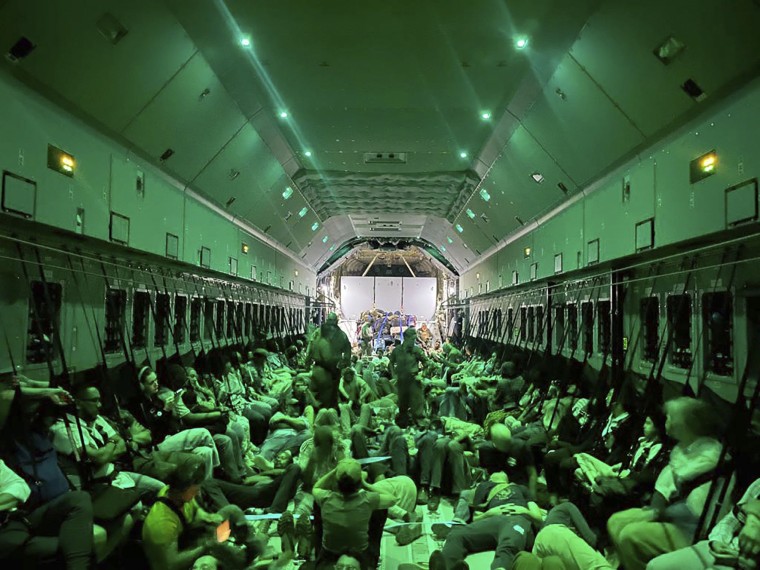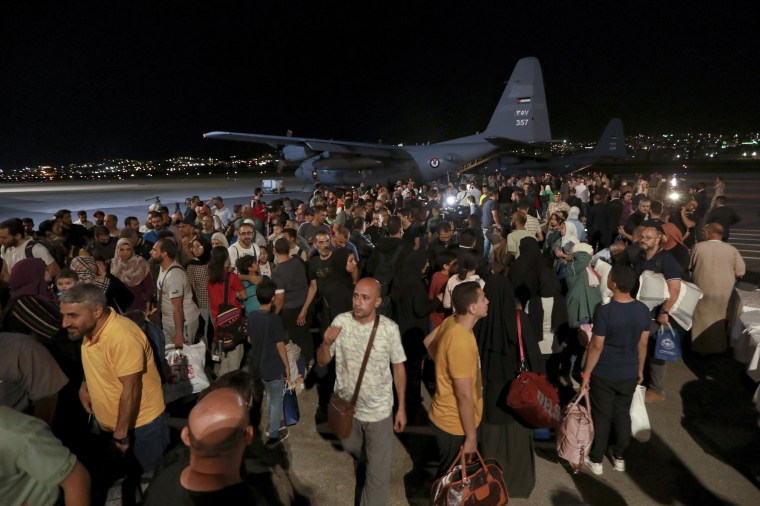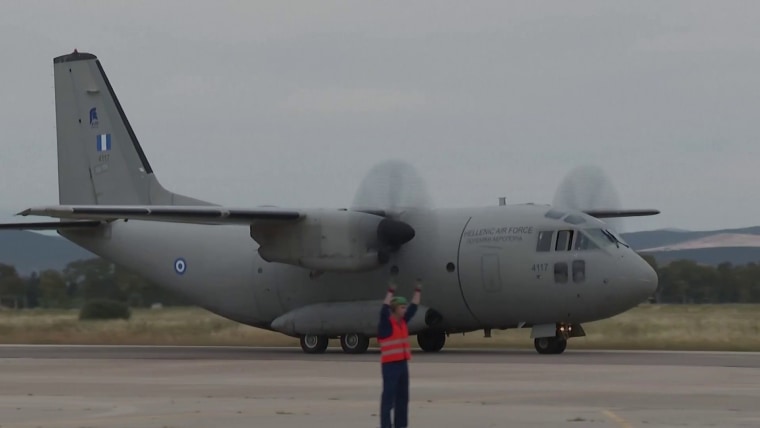Khartoum Imploding
"There were power cuts, no running water, no access to cash. So I left with only $20. The city was complete mayhem when I left.""There were women, children, families who were escaping villages along the way. I thought at the time that only Khartoum had seen the most destruction, but we saw villages that had clearly been devastated by the war."Lakshmi Parthasarathy, 32, U.S. Citizen"There is no way to go outside of Khartoum. You can be shot, everything can happen to you in the street.""All the streets are captured by the militias.""If this war continues for two or three months more, most of the Sudanese people are going to die from poverty because the situation is very, very difficult."Musa Osman El Sayeed, 55, Sudanese citizen
 |
For the people of Sudan, seeing the frantic international airlifts of foreign nationals is a heart-sinking moment, indicating to them that the international community holds out no hope that the two sides in the conflict will reach an agreement any time soon, and the conflict of which several ceasefires have been brokered and subsequently broken will only escalate, leaving them in the middle of a maelstrom they will be helpless to escape.
Foreign governments have committed to airlifting hundreds of their diplomats and other citizens out of the country to safety while Sudanese are left to their own devices desperately seeking out ways they can leave the chaos behind, believing that the two rival generals will raise their present relatively low-level conflict to all-out civil war in their battle for power, awaiting the completion of the foreign evacuations before embarking on full-scale warfare.
Convoys of foreign diplomats, civilian teachers, students, workers and families from various countries made their way past the combatants at front lines in Khartoum in an orderly but tense purpose to reach arranged extraction points, while others drove to the country's east coast, hundreds of kilometres distant.
At the airport a steady stream of European, Mideast, African and Asian military aircraft flew in throughout the day Sunday and Monday to collect the evacuees and fly them out to safety elsewhere; for many the first leg of their trip back to their home countries. The last nominal ceasefire with little reduction in fighting due to expire on Monday evening.
Over 420 people of which total at least 273 were civilians have died, while over 3,700 people have been wounded since the April 15 date when fighting began. The country's military vows to fight to the end until it accomplishes the crushing of the country's paramilitary opposition group. Adequate reason why many Sudanese fear a dramatic escalation in violence.
Sudan's power-sharing negotiations with the ultimate goal of the military to hold democratic elections and relinquish their power role to elected civilians after the military coup, is being challenged by the paramilitary troops with which it had a shared power agreement, but which rejects elections and a civil, democratic government to be returned in the East African country.
Canada is one country that has not made plans to send in military aircraft to evacuate the almost 1,600 Canadians formally registered in Sudan. It has suspended consular services from the capital, noting that Canadian diplomats would "temporarily work from a safe location outside the country", while still making an effort to aid their citizens in Sudan.
The New York Times reported that U.S. special forces evacuated six Canadian diplomats, along with 70 American diplomats and some as well from other countries. Canadians were among a group evacuated by sea to Saudi Arabia. An Egyptian expert on Africa, Amani el-Taweel, warned of "horrific suffering" for Sudanese unable to leave. It is not possible, after all, to evacuate an entire population of any country under military duress. All the more so of a population of 46 million people.
This is a country where humanitarian aid was already required by a third of its population. And with an active conflict, aid agencies will no longer be capable of reaching most Sudanese. "Warring parties will not heed any calls for a truce or a ceasefire" once evacuations are complete, warned Ms. el-Taweel. Despite the ceasefire set to expire, intensified airstrikes hit Khartoum's Nile-side Kalakla district until the area was "razed to the ground".
Continued fighting between the Sudanese military and their rival paramilitary group the Rapid Support Forces saw heavy gunfire and thundering explosions rock the city.
 |
"One of the fighting parties had seized control of the central public health laboratory in Khartoum and kicked out all of the technicians.""That is extremely, extremely dangerous because we have polio isolates in the lab. We have measles isolates in the lab. We have cholera isolates in the lab.""There is a huge biological risk associated with the occupation of the central public health lab in Khartoum by one of the fighting parties.""[The expulsion of technicians and power cuts in Khartoum mean] it is not possible to properly manage the biological materials that are stored in the lab for medical purposes."Dr. Nima Saeed Abid, World Health Organization representative in Sudan

Labels: Airlifts Evacuations, Civil War, International Community, Sudan
0 Comments:
Post a Comment
<< Home